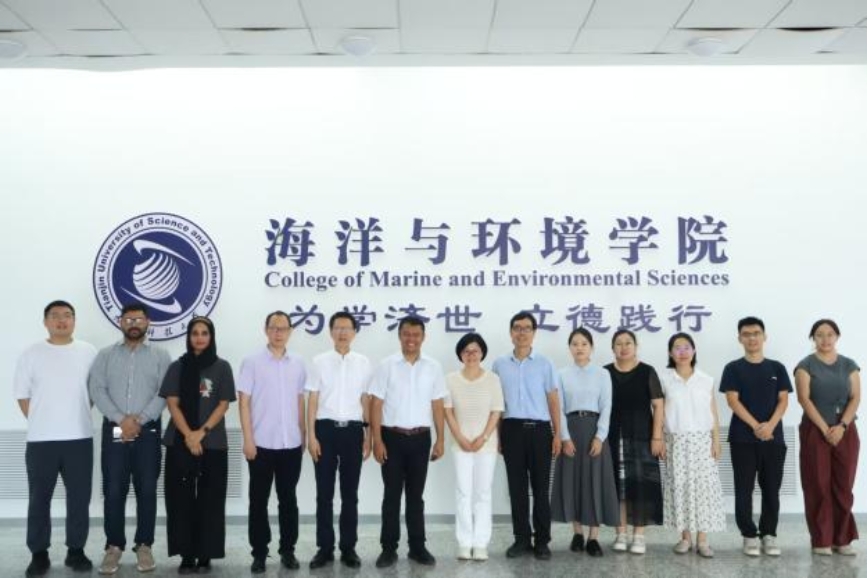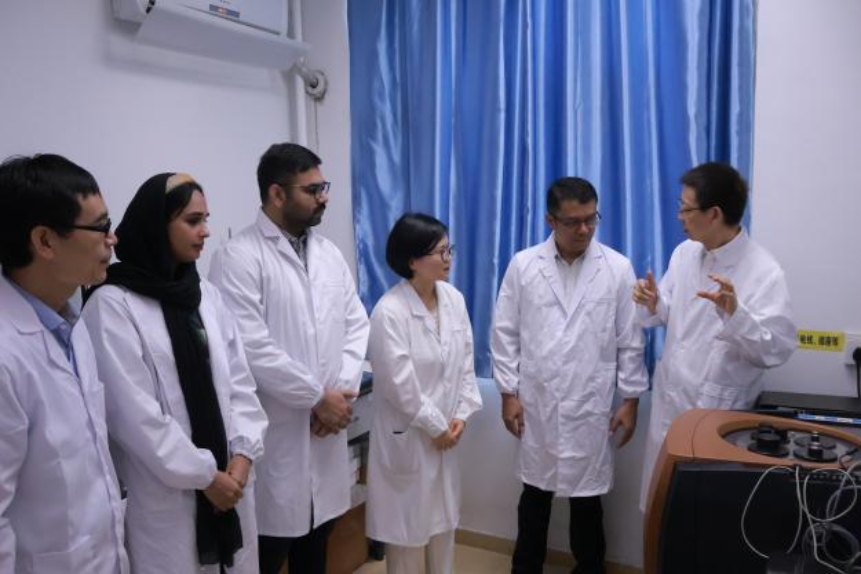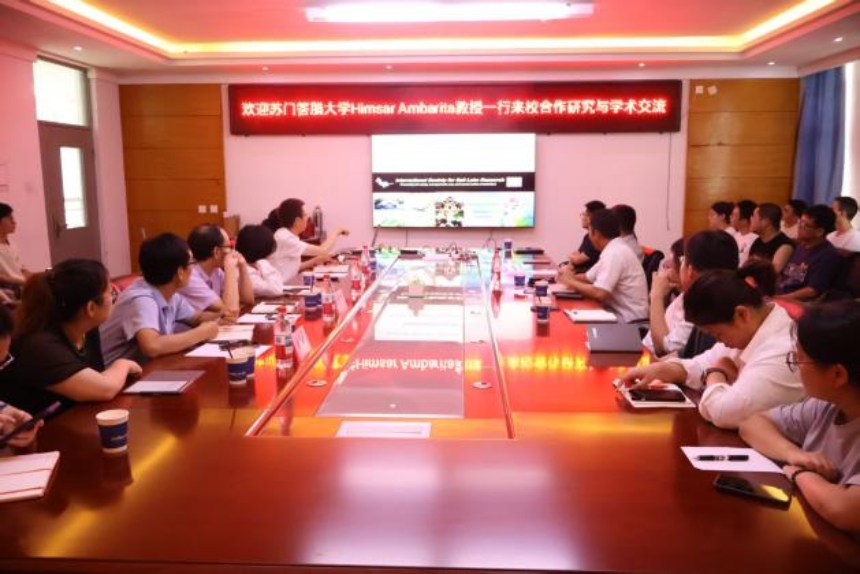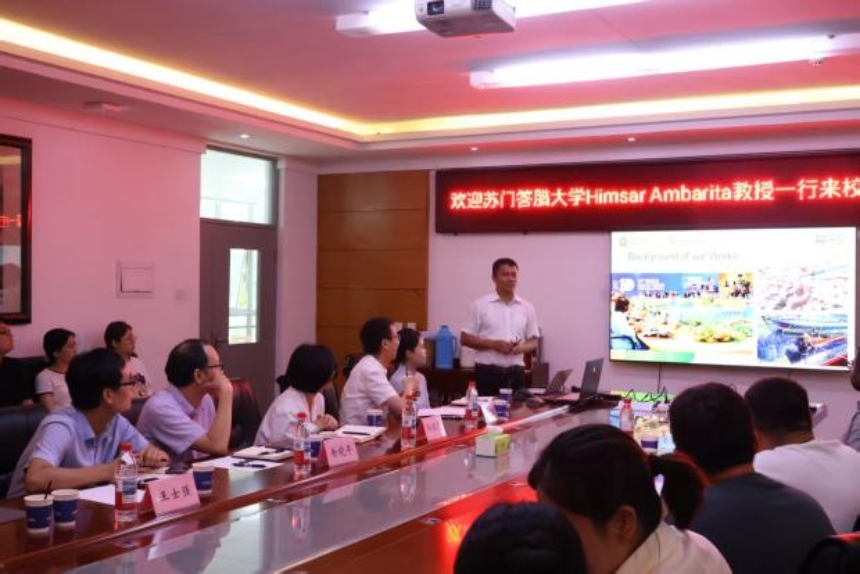
Announcement
Professor Himawan Ambarita from Universitas Sumatera Utara (Indonesia) and His Delegation Visited Tianjin University of Science and Technol
Professor Himawan Ambarita from Universitas Sumatera Utara (Indonesia) and His Delegation Visited Tianjin University of Science and Technology for Cooperative Research and Academic Exchanges
Recently, Professor Himawan Ambarita from Universitas Sumatera Utara (Indonesia) and his delegation visited Tianjin University of Science and Technology (TUST) to conduct cooperative research and academic exchanges. Supported by the National Key Research and Development Program, the International Cooperation Research Project of the National Natural Science Foundation of China, and the Tianjin "the Belt and Road" Joint Laboratory Project, Professor Himawan Ambarita and his team carried out joint research on renewable energy development and green and efficient extraction of scattered elements from marine brine together with the Solution Chemistry and Separation Technology Team of TUST. Relevant researchers of TUST, including Professor Guo Yafei and Professor Yu Xiaoping from the College of Chemical Engineering and Materials Science, as well as Professor Deng Tianlong and Professor Wang Shiqiang from the College of Marine and Environmental Sciences, summarized and exchanged views on the progress of the research work with the Indonesian research team respectively.Universitas Sumatera Utara has unique advantages in tropical marine resource development and mechanical equipment development, while TUST has accumulated rich experience in brine chemical engineering and green and efficient extraction of scattered elements from marine brine. Combining China's "Marine Power" strategy and Indonesia's "Global Maritime Fulcrum" strategy, the two sides will further carry out in-depth cooperation in joint scientific and technological innovation and achievement transformation, teacher-student exchange visits, joint training of doctoral students, and docking and exchange activities in the future, so as to jointly promote the coordinated innovation and development of marine science and technology under the framework of "the Belt and Road".


Professor Himawan Ambarita gave an academic report titled "Green and Efficient Utilization of Marine Resource and Energy" at the TEDA Central Campus of TUST. The report systematically expounded the current situation and challenges of marine resource development, and put forward a path for efficient resource utilization driven by green technology by combining the case of rich marine resources in the Sumatera Utara region. He particularly emphasized the application potential of renewable energy such as solar energy in the marine industry, which forms a good complement to the research achievements of TUST in the field of marine resource separation and extraction. Teachers and students from the College of Marine and Environmental Sciences and the College of Chemical Engineering and Materials Science attended the academic report, and the academic exchange meeting concluded successfully with heated discussions and exchanges.


This academic exchange is an important measure for the College of Marine and Environmental Sciences to implement the "International Communication" initiative of the university's "Pioneer Program". Through in-depth interaction with top international scholars, the college has further expanded its international cooperation network, provided a platform for interdisciplinary exchanges for young teachers and postgraduates, and at the same time facilitated the integration of industry, university and research in green energy technology and the realization of the "dual carbon" goal.
【Brief Introduction】Dr. Himawan Ambarita, Professor and Doctoral Supervisor, is a Professor at the Faculty of Engineering and Director of the Office of International Affairs and Global Cooperation of Universitas Sumatera Utara. He mainly engages in marine resource development and efficient energy utilization. He has presided over a number of projects funded by the Indonesian National Energy Fund and the National Research and Innovation Agency, and has published more than 300 high-level papers. He has been continuously selected into the top 2% of global scientists and ranked 44th among the world's most influential scientists..

